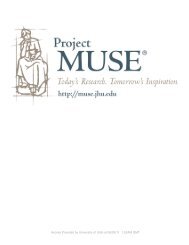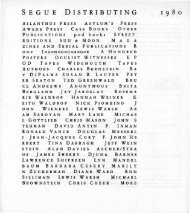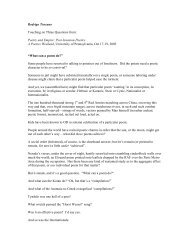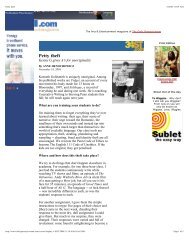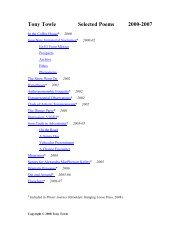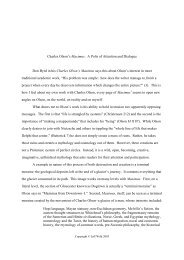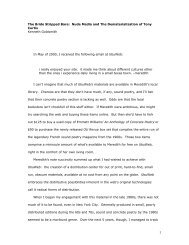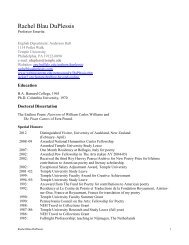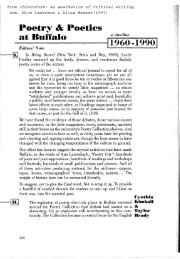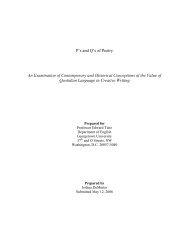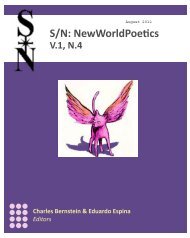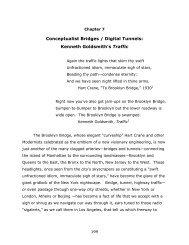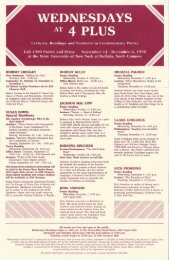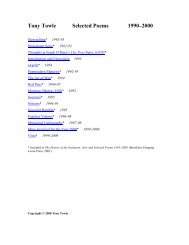Preface - Electronic Poetry Center
Preface - Electronic Poetry Center
Preface - Electronic Poetry Center
Create successful ePaper yourself
Turn your PDF publications into a flip-book with our unique Google optimized e-Paper software.
From: David McAleavey<br />
Subject: Re: Teaching close reading<br />
This thread may have more relevance on the T-AMLIT list, or perhaps on some<br />
other, but I have to agree with Tenney Nathanson that the university’s emphasis<br />
on theory & cultural criticism takes both undergrads and graduate students<br />
away from close reading. How crucial is close reading to writers, to poets<br />
particularly? The students I teach who have most interest in close reading are<br />
those who take as many creative writing courses as they can.<br />
But the different types of reading – pertinent to different types of writing –a<br />
"close reading" of works by most of those subscribing to this list might not<br />
much resemble, task by specific task, a close reading appropriate to poems<br />
written by those in that other, dominant, not-precisely-parallel tradition (as can<br />
be found discussed, say, on the CAP-L list).<br />
But it could be that NT’s point is that no matter the difference in poetic<br />
ideology or practice, a critical reading strategy which involves reading-with-apurpose<br />
(i.e., to explore cultural or economical conditions imbedded in various<br />
texts) may not need to include close reading strategies. Reading for "pleasure,"<br />
however, or reading to "understand the author’s meaning or purpose" – those<br />
tasks do involve close reading (no matter the poetics, I suspect).<br />
The grad-level seminars I’ve been teaching the past two years make me think<br />
students haven’t learned much about close reading; but most find it valuable to<br />
get an introduction. Minds are malleable….<br />
Most of my teachers, I think, were excellent, so maybe my experience differs<br />
from the norm. Still, I did have some losers thrown in there, and surely some of<br />
them were just being tendentious under the guise of doing "close reading."<br />
From such you wouldn’t learn much of anything, of ear or eye. We’ve all had<br />
enough bad teaching to know what it’s like to feel stepped on.<br />
The best writers, theorists or poets, have paid a lot of attention to things – for<br />
example, to the prosody of the first seven Cantos. "Close reading," the way I<br />
intended it, is just a subset of "paying attention." Reading page after page of<br />
"close readings" of poems, on the other hand, wears thin pretty quickly. Let’s<br />
just read the poems, I want to say!



